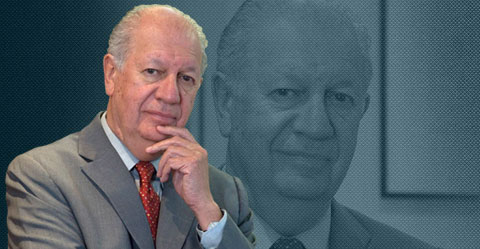Latin America is at a watershed. Today, democracy is well-established and independent monetary policies with a certain degree of open markets as part of a globalized system are the norm. Throughout the region, the rule of law is taken for granted, as are property and social rights.
We have taken a step forward, mainly as a result of the work we have undertaken. For the first time in decades we can say to the world that we, as Latin Americans, are not responsible for a global economic crisis. And of course, we’ve learned something from our long history of local economic crises. In the twenty-first century we have worked to create solid, stable financial systems and to implement well-focused social policies that have allowed us to reduce the rate of poverty—from 43.4% in 2002 to 27.9% in 2013—and to integrate emerging sectors into our society. Continue Reading
 Protection of the climate and the environment is a clear example of what have come to be called global public goods, i.e. goods we must nurture and protect between us all. Assuming that the challenge for the planet is to prevent more than a 2 degree rise in global warming by 2030, the recent agreement between China and the United States on reducing greenhouse gas emissions in the mid-term is a significant advance towards achieving a global consensus.
Protection of the climate and the environment is a clear example of what have come to be called global public goods, i.e. goods we must nurture and protect between us all. Assuming that the challenge for the planet is to prevent more than a 2 degree rise in global warming by 2030, the recent agreement between China and the United States on reducing greenhouse gas emissions in the mid-term is a significant advance towards achieving a global consensus.
In this favourable setting, last week I had the opportunity to present the report Better Growth, Better Climate: the New Climate Economy, prepared by the Global Commission on the Economy and Climate. Continue Reading
2014
A few weeks ago I was invited to speak at a Congress examining the relationship between the public and private sectors in Chile. In front of an audience made up principally of businesspeople and politicians, I shared my thoughts about the importance of collaboration between both areas and how it can drive the development of a country.
At the beginning of the 21st Century, the spheres of influence of the triad formed by the state, the market and society depend on the political circumstances and the decisions that citizens take in a democratic context, as expressed by the State. The development models for Asian economies are precisely the consequence of an effective and harmonious collaboration between the state and private systems and the capacity of both to join forces to compete in an increasingly global world. Continue Reading
Amid the international debate about the exploitation of natural resources, a trend has been established for public policies to create productive framework for sustainable development and long term growth.
This is especially important in countries that depend upon industries that exploit natural resources, such as mining. This industry is faced with the challenge of constructing a shared vision between all the parties involved to ensure that mining will be truly competitive, to add value to extraction activities and also to make a contribution to the country’s economic progress. Continue Reading
A few years ago, when political candidacies for the first decade of the 21st century were being outlined, a group of young people invited me to design and carry out a digital platform that would support an eventual presidential nomination.
I declined, not only because I had no intention of running for President of Chile again, but because I had been thinking for some time that the challenge was bigger: building an open digital community that would amplify citizens’ voices by channeling debates and turning them into concrete policy-making, through direct participation. That’s how Quinto Poder was born, as part of the Fundación Democracia y Desarrollo (Foundation for Democracy and Development) I chair since 2006. Continue Reading




